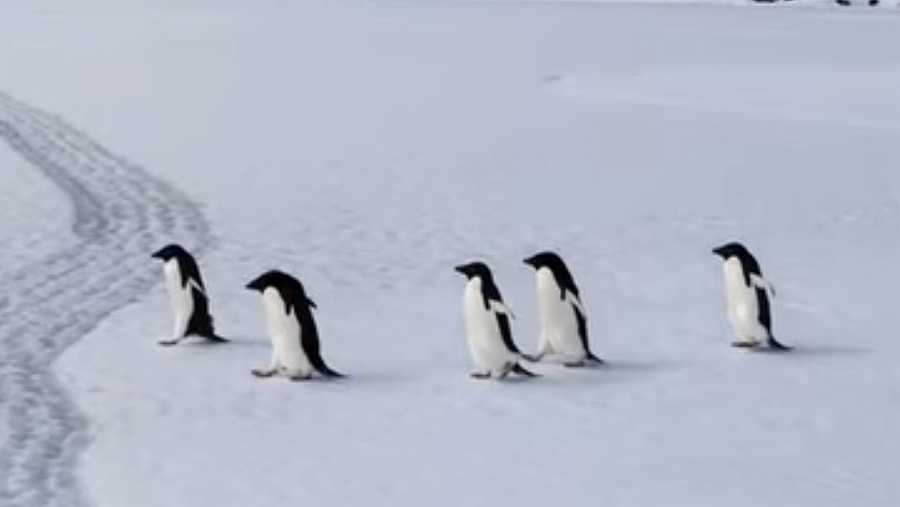Penguins: Studying the World's Ocean Sentinels
Penguins are remarkable creatures. King penguins can hold their breath for 23 minutes and dive over 1,600 feet in their search for food. Magellanic penguins can cover 107 miles a day and as much as 10,000 miles a year. And emperor penguins breed on the Antarctic ice, with the egg incubating for up to 55 days on the feet of a fasting male, at temperatures below minus 40 degrees Fahrenheit in winds up to 90 mph.
Because penguins live most of their lives at sea but return to land to breed and molt, they are gauges of marine health that are accessible to researchers and relatively easy to study. Through these ocean sentinels, scientists can learn about the health of marine ecosystems across the Southern Hemisphere and use this knowledge to develop realistic and effective conservation strategies for the world’s southern oceans.

Sentinels Of the Ocean
Learn moreAdditional Resources


This video is hosted by YouTube. In order to view it, you must consent to the use of “Marketing Cookies” by updating your preferences in the Cookie Settings link below. View on YouTube
This video is hosted by YouTube. In order to view it, you must consent to the use of “Marketing Cookies” by updating your preferences in the Cookie Settings link below. View on YouTube






